
Bashutskyy/iStock/Getty Images
Many people enjoy boosting the flavor of their foods with salt, spices and herbs. Herbs can be used fresh or dried to add zest to dishes; some herbs also add nutrients such as zinc to your diet. The amount of zinc found in herbs is typically small, yet contributes to the daily requirement provided by a well-balanced diet.
Parsley
Parsley is a common herb used both as a garnish and a flavoring for food. One tbsp. of dried parsley introduces 0.09 mg of zinc into your diet. Because you need 8 to 11 mg of this mineral each day, pair parsley with other zinc-rich foods, including beef shanks, pork shoulder or tenderloin, chicken legs and chickpeas. Zinc positively influences your body's ability to heal after you sustain an injury, so make sure you get the full amount of zinc you need each day for this purpose.
Rosemary
Eat a 1-tbsp. serving of fresh rosemary and you consume 0.02 mg of zinc. Supplement your zinc intake by adding rosemary to pork, chicken breast and fish such as flounder or sole, all of which also provide zinc. Consuming enough zinc is not only linked to good health for you, but is particularly important during pregnancy as it helps support fetal growth. During pregnancy, a woman needs an intake of 11 mg of zinc daily.
Sage
One tbsp. of dried sage contains 0.09 mg of zinc. Including sage and richer zinc sources in your diet may provide benefits when you need to stimulate your appetite. A study published in the August 2011 issue of the journal "Recent Patents on Food, Nutrition and Agriculture" indicates that zinc effectively boosts food intake. Researchers suggest that a zinc deficiency may correlate to anorexia, although more studies are needed to confirm this finding.
Dill
Dill, an herb with a tangy flavor, is another source of zinc, with 0.1 mg per tbsp. of dried herb. Boost your intake of zinc by flavoring zinc-rich foods such as peas and cheese with dill. Increasing your zinc intake may be beneficial if you and your partner are trying to conceive as zinc contributes to sperm quality. Research featured in the June 2011 issue of "Systems Biology in Reproductive Medicine" notes that a zinc deficiency leads to reduced sperm motility and quantity as well as decreased fertility. This study was carried out in animal models, so more research is needed to determine the amount of zinc needed to affect this benefit in humans. Upping zinc intake by adding herbs such as dill to other foods with zinc is one way to increase intake enough to reap possible benefits.
Chervil
A 1-tbsp. serving of dried chervil, an herb that imparts a slight licorice aroma, contains 0.1 mg of zinc. Zinc deficiencies can trigger a range of symptoms, so the zinc available in chervil can contribute to meeting the daily intake necessary to avoid deficiency-related maladies. These include skin lesions, stunted growth and cognitive problems associated with not getting enough of this critical mineral.
Related Articles
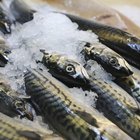
The Nutritional Value of Norwegian ...

Zinc & Copper for Aging Skin

L-Lysine for Hair Growth

Zinc Treatment for Rosacea
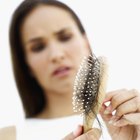
Is Zinc Good for Hair Growth?

What Vitamins Help the Liver?
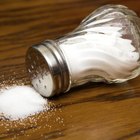
How to Find a Salt Substitute Without ...
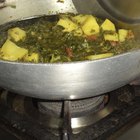
Kasoori Methi Nutrition

Vitamins for Mental Alertness

Basil for Hair Growth
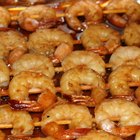
A List of Foods That Contain Choline
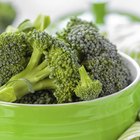
Foods Rich in Magnesium & Phosphorus

What Foods Provide Calcium D-Glucarate?

Arginine for Hair Growth
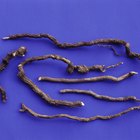
Benefits of Indian Sarsaparilla
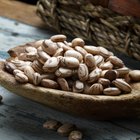
Potassium in Pinto Beans

How to Use Copper Peptide With Vitamin C

Can Herbs Flush Cellulite?
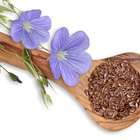
Flaxseed Meal Nutrition
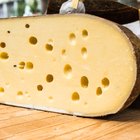
Swiss vs. Cheddar Cheese Nutrition ...
References
- Office of Dietary Supplements; Zinc; June 2011
- National Nutrient Database
- "Recent Patents on Food, Nutrition and Agriculture"; Zinc as an Appetite Stimulator - The Possible Role of Zinc in the Progression of Diseases Such as Cachexia and Sarcopenia; H. Suzuki, et al.; August 2011
- "Systems Biology in Reproductive Medicine"; Testicular Apoptosis After Dietary Zinc Deficiency; D. Kumari, et al.; June 2011
Writer Bio
Nicki Wolf has been writing health and human interest articles since 1986. Her work has been published at various cooking and nutrition websites. Wolf has an extensive background in medical/nutrition writing and online content development in the nonprofit arena. She graduated with a Bachelor of Arts in English from Temple University.
Photo Credits
Bashutskyy/iStock/Getty Images